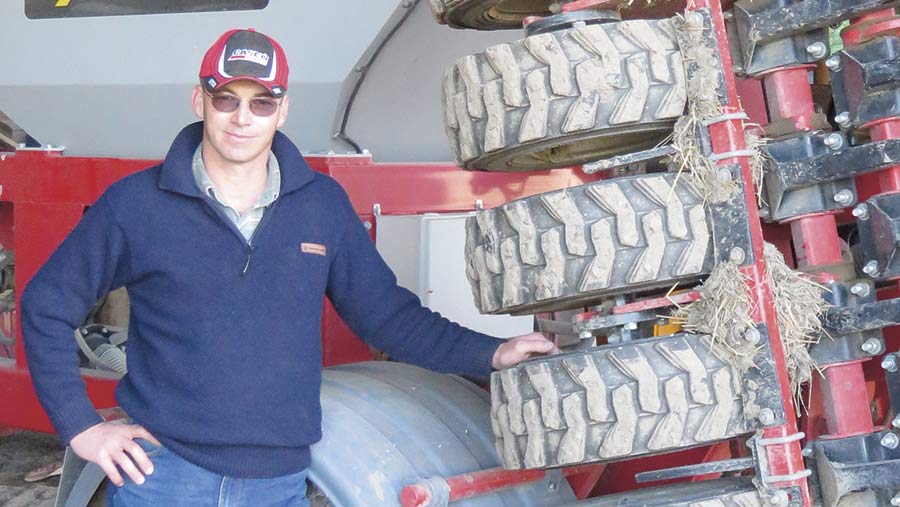Farmer Focus: Wet weather puts drilling on hold
 © Andrew Swallow
© Andrew Swallow This week’s report from Valetta is brought to you by the letter “D”, for damp and deluge.
The weather forecasters were spot on in predicting a savage winter storm and we ended up with 134mm in 30 hours, which for us is big rain on top of a very wet few months.
Our farm borders the Ashburton River and, while fortunately it stayed within its banks, we had a lot of surface water banking up against roads and tracks.
See also: Read more from our Arable Farmer Focus writers
I have always taken the view that it is better to react early and risk an overreaction than get caught out by a storm, so we took all of the stock off winter feed crops the night before and spread them out on permanent pasture fields and areas with good shelter to protect them from the 60mph southerlies driving the storm.
For the next three days we fed them balage and by this morning we had all mobs back on the kale with no harm done.
Being a bit conservative in our outlook, we keep two winters’ supply of silage on hand to manage our snow risk, as we sit at the higher altitude on the Canterbury Plains.
The guys wintering cows on arable and dairy support farms are finding it tough – the ground is saturated and the cows are making a dreadful mess.
Soil structure will take a couple of years to recover and feed use is very poor, putting pressure on what was already very tight feed reserves as the fodder beet and kale yields have been 20-30% below average after our wet autumn.
Calving commences soon
Calving begins in two weeks and these herds are starting to be trucked home to dairy platforms that are too wet to graze calving cows without significant pasture damage.
However, there are two positives of our very wet autumn and winter. First, inquires for supplementary feed, straw, balage, beet and feed grains are strong and we are seeing a useful recovery in pricing.
Second, Canterbury has had three very dry winters with little or no recharge of the underground aquifers and well levels have been at all-time lows.
It will be a few weeks before D is for drilling.
David Clark runs a 463ha fully irrigated mixed farm with his wife Jayne at Valetta, on the Canterbury Plains of New Zealand’s south island. He grows 400ha of cereals, pulses, forage and vegetable seed crops, runs 1,000 Romney breeding ewes and finishes 8,000 lambs annually.

